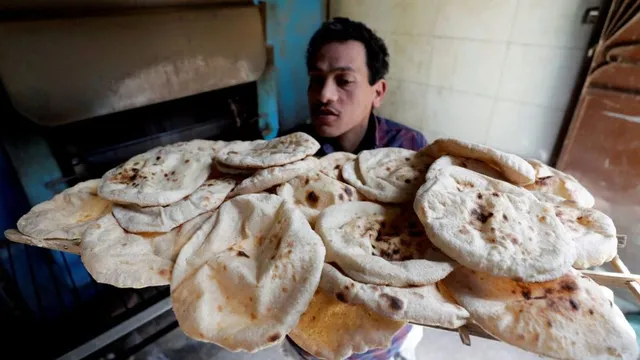- By Supratik Das
- Tue, 02 Sep 2025 01:17 PM (IST)
- Source:JND
Pakistan is facing an unprecedented hunger crisis with wheat and flour prices still climbing through wholesale and retail channels, raising fears of widespread hunger and political unrest The federal government's repeated claims of "sufficient stocks" aside, wholesale wheat is currently on sale in Karachi at Rs90 a kg, significantly higher than Rs62 in July and Rs72 mid-August. This has led to flour prices reaching levels that average households can hardly afford.
Chakki atta varieties, which are commonly used in making daily bread, have touched Rs 135 per kg in wholesale markets, a steep increase of Rs 20 per kg within less than a month. According to market figures cited by Dawn, Chakki flour is currently selling for Rs 97 per kg, whereas fine flour has gone up to Rs 103 per kg, from Rs 81 and Rs 85 merely weeks ago. As per the Sensitive Price Index (SPI) for the week ending August 28, a 10kg wheat flour bag now costs Rs794 compared to Rs640 earlier, while a 20kg bag is priced between Rs1,700 and Rs2,100. Traders and wholesalers in Karachi warn that with the next wheat crop not due until March-April 2026, retail prices of wheat flour could soar above Rs200 per kg in the coming months if urgent steps are not taken to curb hoarding and stabilise supply.
Pak Govt Claims Vs Market Reality
National Minister for Food Security and Research Rana Tanveer Hussain recently informed local media that Pakistan had 33.47 million tonnes of wheat against the annual demand of 33.58 million tonnes, making imports unnecessary. Industry experts and millers, however, reject these numbers. "The government is including leftover stock from last year and at least 400,000 to 500,000 tonnes of low-quality grain.". The real harvest is more like 29–30 million tonnes, of which 3–4 million tonnes have already gone into livestock feed," said Rauf Ibrahim, Chairman of the Karachi Wholesalers Grocers Association (KWGA), in his conversation with Dawn. He blamed policymakers for having fabricated an artificial shortage by putting wheat purchases for flour mills on hold and eliminating the support price in the IMF programme. "The free-market model benefits only hoarders and speculators, not producers or consumers," he added.
Climate Change And Worsening Food Crisis
Torrential monsoon rains have submerged vast stretches of farmland, destroyed ready-to-harvest crops, and displaced over 2 million people. At least 50 people have died, while more than 700,000 have been evacuated as floodwaters move south towards Sindh. "This is not another natural disaster; this is climate change," UN Resident and Humanitarian Coordinator in Pakistan Mo Yahya cautioned in an X post after visiting the devastated Hafizabad district.
Pakistan’s wheat crisis is not just a supply problem but also a financial one. Considering that foreign exchange reserves are already below USD 9 billion, a significant import of wheat could further destabilize the already precarious economy. Pakistan bought 2.2 million tonnes of wheat in 2023; there may be a shortage of over 3 million tonnes in 2024–2025, which would cost more than USD 1.5 billion. Recognising the urgency, the World Bank earlier this year announced a $20 billion Country Partnership Framework (CPF) to help Pakistan build climate-resilient agriculture, improve irrigation infrastructure, digitise procurement, and support small farmers.
Hungry Times Ahead?
Wheat accounts for 72 per cent of the caloric intake of Pakistan’s population, making the current crisis a potential flashpoint for social unrest. Food insecurity is already spreading, with roti and naan sellers preparing to raise prices in line with rising input costs. "If it goes on like this, flour would be beyond the reach of millions of families," a Karachi trader said so to Dawn, reflecting concerns of citywide protests like those in 2024.
ALSO READ: Pakistan PM Shehbaz Sharif Shows Water Pain At SCO, As PM Modi Talks Tough On Terror
Pakistan now has to decide between famine-like conditions, massive protests, and political instability, or prompt reforms and strict enforcement of anti-hoarding regulations. Evidently, the nation's wheat shortage is the consequence of climate shocks, policy missteps, and economic constraints, placing Pakistan’s most basic staple, roti at the heart of a looming national emergency.

